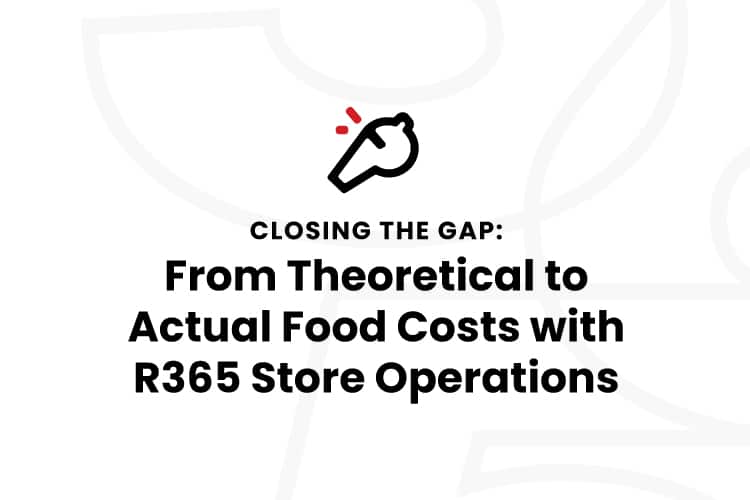This article by Jennifer Simmons, Director of Marketing at Restaurant365 and featured in Nation’s Restaurant News
Investors, regulators, and consumers alike are demanding these changes.
Over the past few years, the focus on ESG (Environmental, Social, Governance) is growing as investors, regulators, and consumers fuel demand for sustainable firms, investments and products.
More importance is being placed on nonfinancial performance, such as the treatment of employees and vendors and dedication to sustainability initiatives. In fact, an Ernst & Young survey found that of 298 global institutional investors, 98% evaluate nonfinancial performance based on corporate disclosures, 91% say that nonfinancial performance has played a pivotal role in their investment decision-making over the past 12 months, and 75% would find value in assurance of the robustness of an organization’s planning for climate risks.
The number of investors seeking opportunities with companies who hold similar values to their own is on the rise. To keep up, it’s important to consider how to assess your performance regarding factors such as climate risk, corporate governance, diversity, and more, should a potential investor inquire.
The Chartered Financial Analyst (CFA) Institute, a non-profit professional organization that provides investment professionals with finance education, has broken down the ESG criteria as follows:
Environmental issues: Climate change and carbon emissions; air and water pollution; biodiversity; deforestation; energy efficiency; waste management; and water scarcity.
Social issues: Customer satisfaction; data protection and privacy; gender and diversity; employee engagement; community relations; human rights; and labor standards.
Governance issues: Board composition; audit committee structure; bribery and corruption; executive compensation; lobbying; political contributions; and whistleblower schemes.
Addressing several of the ESG criteria in the lists above would not only deliver long-term value to environmental, social and governance issues, but also improve the day-to-day struggles that every restaurant operator faces. Below are three examples with both immediate and future benefits to consider when creating an ESG report.
Cutting back on food waste with inventory management and sales forecasting
According to FoodPrint, approximately 4-10 percent of food purchased by restaurants is wasted before reaching the consumer. U.S. restaurants generate an estimated 22-33 billion pounds of food waste each year, with much of this waste being perfectly edible and nutritious.
The key to reducing food waste lies in prevention. You can’t waste food that was never ordered, prepped, or served in the first place. Fortunately, we can use technology to guide us through alleviating the issue of food waste. Better inventory management and improved sales forecasting will not only reduce waste, but also do wonders to improving your bottom line.
Turning to hybrid and four-day work week models
The four-day work week is touted to increase employee satisfaction, attract talent, and improve employee retention. While many companies world-wide are experimenting with this idea, some restaurant operators may struggle with what that model would look like.
A four-day work week in our industry will be a different approach than what one would see from a large corporation. While it is possible for some restaurants to examine their sales and determine that a certain day of the week is just not going to be profitable no matter what tactics have been tried, others can’t afford to have a shutdown day.
In those cases, it could be feasible to shift employees to a four-day work week by increasing the employee daily hours while reducing the days worked. Many employees would prefer to work doubles over a few days as opposed to showing up for a single lunch shift each day of the week, ultimately saving employees money on gas and time from traveling. With restaurant data stored in the cloud, managers can turn to a hybrid approach in which they alternate working from home on days that are designated for reporting.
Cross-training employees to do multiple tasks can also allow for a four-day work week. Training back of house employees on how to perform each other’s jobs will allow slower shifts to be run with fewer employees, creating a better work-life balance for staff without compromising service.
Offering employee incentives like tuition reimbursement
Employee incentives within the restaurant industry have skyrocketed among the shortage in workers since the start of COVID-19. Employers offer everything from sign-on bonuses, retention bonuses, and free meals.
In this fight for talent, offering tuition reimbursement (be sure to check for the IRS limit before launching a program) could be a great incentive to add to your recruiting and retention efforts. Huge chains including Chick-fil-A and Chipotle have proven that tuition reimbursement is a popular benefit that is sought after by job candidates.
Worried about educating great talent only for them to leave? Give them a career path based on their work and education performance. Better yet, show them how other employees have worked their way up within the organization. Restaurant people are restaurant people, and many would jump at the chance to advance within their current organization as their industry knowledge grows.
Ignoring ESG will soon no longer be an option if you are looking to grow your business through third-party funding. However, even those who are not looking for investors could benefit from the increase in both customer and employee interest in your brand, and the boost in your bottom line that ESG can provide.


